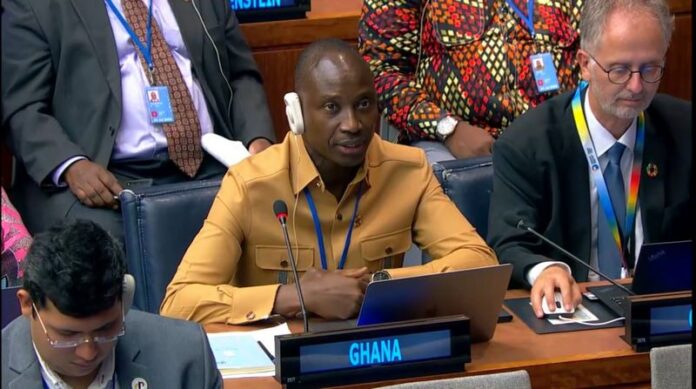Government Statistician, Dr. Alhassan Iddrisu, has issued a compelling call to action at the High-Level Political Forum on Sustainable Development in New York, urging global leaders to treat data as “core infrastructure” if they are serious about achieving Sustainable Development Goal 8 (SDG 8) on decent work and economic growth.
Speaking on the state of SDG 8, Dr. Iddrisu acknowledged Ghana’s economic progress — highlighting a 5.7% GDP growth in 2024, well above the Sub-Saharan African average, and a sharp drop in inflation from 54% in 2022 to 13.7% as of June 2025.
However, he cautioned that macroeconomic gains alone are insufficient.
“Unemployment remains high at 14.7%, and youth joblessness exceeds 25%. Over 70% of our labour force — mainly women and young people — remains in the informal sector. This is not just a jobs gap. It is a dignity gap,” Dr. Iddrisu said.
He outlined Ghana’s national Reset Agenda, which aims to create jobs and protect vulnerable groups through transformative programmes such as the 24-Hour Economy initiative, a US$10 billion Big Push infrastructure programme, and digital skills training for 1 million young people under the “1 Million Coders Initiative.” Ghana is also formalising artisanal mining and embedding employment targets into monetary policy.
But Dr. Iddrisu stressed that none of these interventions can be truly effective without timely and robust data. Since 2022, Ghana has produced quarterly labour statistics, and this year, the country will launch a national skills mismatch survey to better align training with market demands.
“Our compass for this transformation is data. If we are serious about SDG 8, data must be treated as core infrastructure — essential to recovery, not incidental to it,” he declared.
With just five years remaining to meet the 2030 Agenda targets, Dr. Iddrisu issued a final rallying call: “Let us act, not just commit, in these final five years. The future of work, and the dignity of workers, depend on this action.”
Source: Finance Ministry
ALSO READ:


